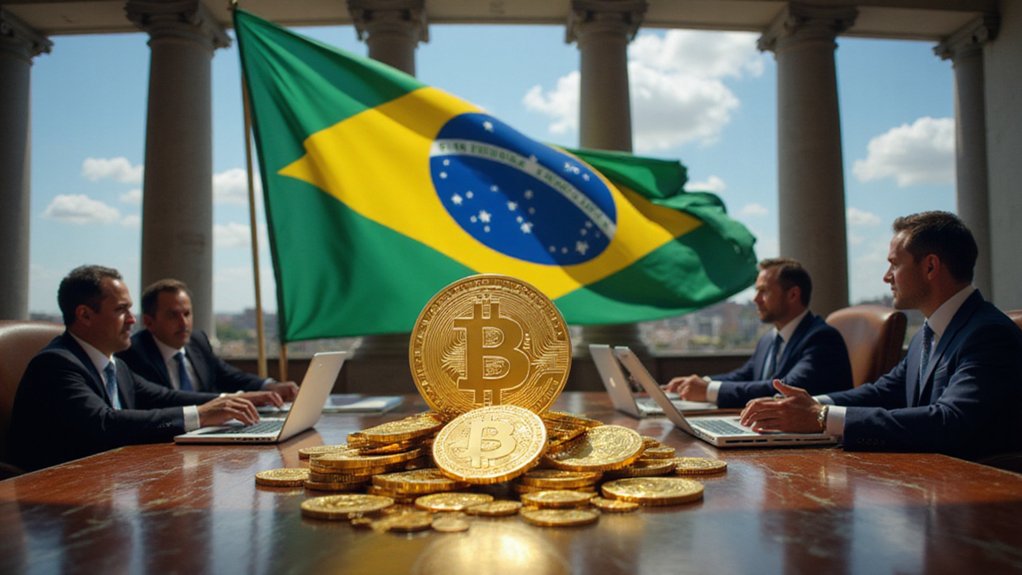How does a nation with $341 billion in foreign reserves decide that parking 5% of that treasure chest in the world’s most volatile digital asset constitutes prudent fiscal policy?
Brazil appears ready to find out, as the Chamber of Deputies prepares for what may become the most consequential cryptocurrency hearing in Latin American history.
Bill 4501/2024, championed by Deputy Luiz Philippe de Orleans e Bragança and introduced by Deputy Eros Biondini, proposes creating the Sovereign Strategic Bitcoin Reserve (RESBit)—a $17 billion bet that digital gold might prove more reliable than the traditional variety.
The August 20, 2025 public hearing will transform Brazil’s Economic Development Committee into ground zero for a debate that could reshape sovereign treasury management globally.
The arithmetic alone commands attention: Brazil’s proposed allocation would dwarf El Salvador’s pioneering but modest Bitcoin holdings, establishing the world’s ninth-largest economy as cryptocurrency’s most formidable institutional player.
While MicroStrategy’s corporate treasury strategy garnered headlines with over 21,000 BTC purchases, Brazil’s potential commitment operates in an entirely different stratosphere of financial consequence.
The stated rationale follows familiar diversification logic—hedging against dollar fluctuations, reducing fiat currency exposure, and achieving the holy grail of financial sovereignty that emerging economies perpetually seek.
Brazil frames this as strategic portfolio optimization rather than speculative gambling, though critics might reasonably question whether a 70% annual volatility asset qualifies as “strategic” in any traditional sense. This ambitious initiative builds upon Brazil’s already sophisticated cryptocurrency infrastructure, which includes spot cryptocurrency ETFs and various blockchain investment products that have established the nation as a regional fintech leader.
Strategic diversification meets speculative reality when 70% volatility becomes a cornerstone of national treasury management.
The timing proves particularly intriguing, following the United States’ own Strategic Bitcoin Reserve establishment through early 2025 executive actions. Bitcoin’s fixed supply cap of 21 million coins provides a compelling contrast to traditional fiat currencies that can be expanded at will, offering potential protection against monetary debasement.
Brazil’s deputies apparently concluded that if America embraces cryptocurrency reserves, Brazilian fiscal prudence demands similar consideration—a curious inversion of traditional monetary conservatism. The global momentum extends beyond these two nations, as other countries like Kazakhstan, India, and Sweden are actively exploring similar digital asset reserve strategies.
The upcoming hearing promises thorough stakeholder participation: Ministry of Finance officials, Central Bank representatives, fintech advocates, and crypto evangelists will converge to dissect regulatory implications, technical feasibility, and economic wisdom of history’s largest sovereign Bitcoin acquisition.
The proceedings will also explore potential synergies with Brazil’s Central Bank Digital Currency initiative, Drex, suggesting broader blockchain integration ambitions.
Whether Brazil’s bold gambit represents visionary monetary policy or expensive education in cryptocurrency market dynamics remains an open question—one that $17 billion will definitively answer.





